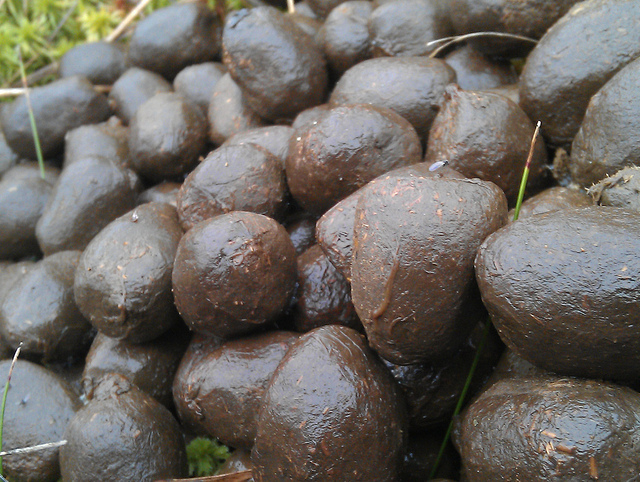
In an effort to curb a crying fit as I was leaving to play hockey a few months ago, I told almost-4-year old Jack that he could watch me on TV when I left (a Carolina Hurricanes game was about to start). He believed me and apparently watched 5 minutes before getting bored. He still thinks the guys I play with every Monday night are Jeff Skinner and Eric Staal.
I’m sure Jack will be crushed when he finds out I tricked him (and play adult beer league hockey, fairly poorly). While the hockey trick won’t get me a parent of the year award, I’ve never convinced either of my kids (or anyone else’s kids) to eat moose poop, or anything else that might contain a bunch of pathogens.
According to the National Post (that’s from Canada) an adult chaperone of a 8th-grade canoe trip is accused of telling two Winnipeg students that dried moose droppings was ‘a nutritious mix of wild berries and grass.’
The allegations stem from a May 25 trip involving about two dozen students from Walter Whyte School, accompanied by teachers and other adult chaperones.
Angie Jonski said her nephew was one of the victims.
“They all laughed — he ran to the river to wash his mouth out,” Jonski said.
Lord Selkirk superintendent Scott Kwasnitza confirmed he has been conducting an investigation, but would not discuss any details.
“We’re trying to deal with it internally,” he said.
Moose are ruminants, and often carry pathogenic E. coli in their poop. Authors of a 2005 Norwegian survey of wild cervid poop found E. coli O103 in over 20 per cent of tested turds.
